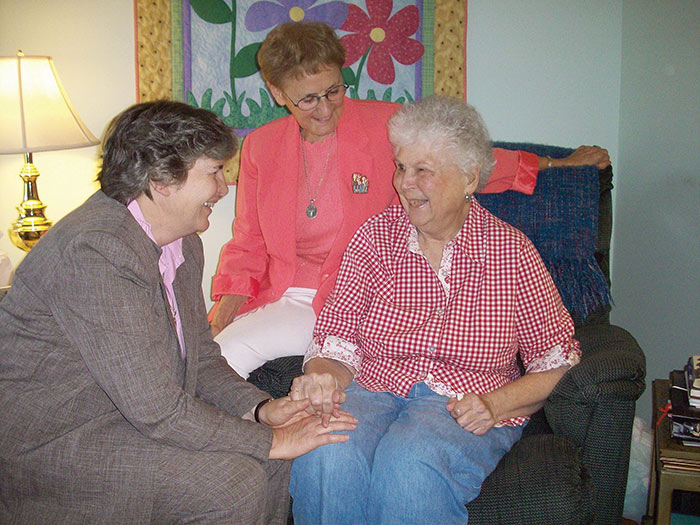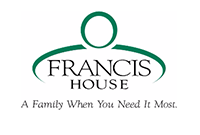
Consider making a commitment to the ministry of Francis House through planned giving. Planned giving is the integration of sound personal, financial and estate planning concepts with your plan for lifetime or testamentary giving. There are a variety of planned giving vehicles that allow you to give generously at minimum cost, without spending cash out of pocket, while receiving tax savings and in some cases increasing your spendable income.
As with any major financial decision, we suggest that you contact your attorney, accountant or financial advisor first. She or he can help you to examine your individual situation including your personal and family needs and your wishes to support Francis House. With an individualized plan, you can receive the maximum benefit during your lifetime while making a plan to take care of those most important to you with a minimum amount of taxation.
Bequests
Donors can make a bequest to Francis House through the execution of a new will or addition (codicil) to an existing will. The donor should designate Francis House with its legal name, Francis House, Inc.
Bequests may be made in several ways. The donor can designate a percentage of their estate to Francis House or the donor can designate a fixed amount to Francis House. The donor can give a residuary bequest that gives Francis House all or a portion of the estate after all debts, taxes, expenses and other bequests have been paid. The donor may arrange, after the death of a named beneficiary, that the principal or some of the surviving estate will become the property of Francis House.
Life Insurance
Francis House will accept tax-deductible gifts of life insurance policies in which the donor has transferred ownership of the policy to Francis House, including whole life, variable and universal life policies, in which the policy is fully paid. The donor can also name Francis House as a beneficiary of his or her policy.
Retirement Plan Accounts
You can name Francis House as the sole or partial beneficiary of your IRA, 401(k) or other retirement plan accounts. Unlike an individual beneficiary you could name, Francis House does not incur any income taxes on your gift because we are a non-profit organization.
Charitable Remainder Trust
Two basic types of charitable remainder trusts qualify for federal tax benefits: unitrusts and annuity trusts. In both arrangements, a donor gives stock, cash or other assets to a trust. Those assets are invested, producing income for the donor or other beneficiary either for a fixed period of time or until the donor dies. The donor is allowed to claim a tax deduction for the estimated portion of the assets that will ultimately go to charity. When the donor dies, the charity retains the remaining assets.
Unitrusts
Under a basic unitrust, the donor receives one or more yearly payments equaling a fixed percentage, not less than 5% of the value of the asset. The value is assessed each year. Under a net-income unitrust, the donor receives only the income earned by the trust, even if the trust earns less than the pay-out rate; however, the trust can be set up to include a “make-up provision” that allows donors to make up the lost income, provided the trust earns more than the pay-out rate in future years.
Charitable Lead Trust
Two basic types of charitable lead trusts qualify for federal tax benefits: unitrusts and annuity trusts. In both cases, a charitable lead trust provides immediate support for Francis House through income generated by the assets in trust for a set period of time, after which the assets pass to the donor or non-charitable beneficiary. As mentioned above, the unitrust has a variable rate based on a percentage of the asset while the annuity trust has a fixed rate.
If you have any questions regarding how you can help support the ministry of Francis House, contact (315) 475-5422 or info@francishouseny.org

